SEO vs PPC: Which Strategy Drives Better Results for Your Business?
Contributors:
Amol Ghemud
Published: March 14, 2024
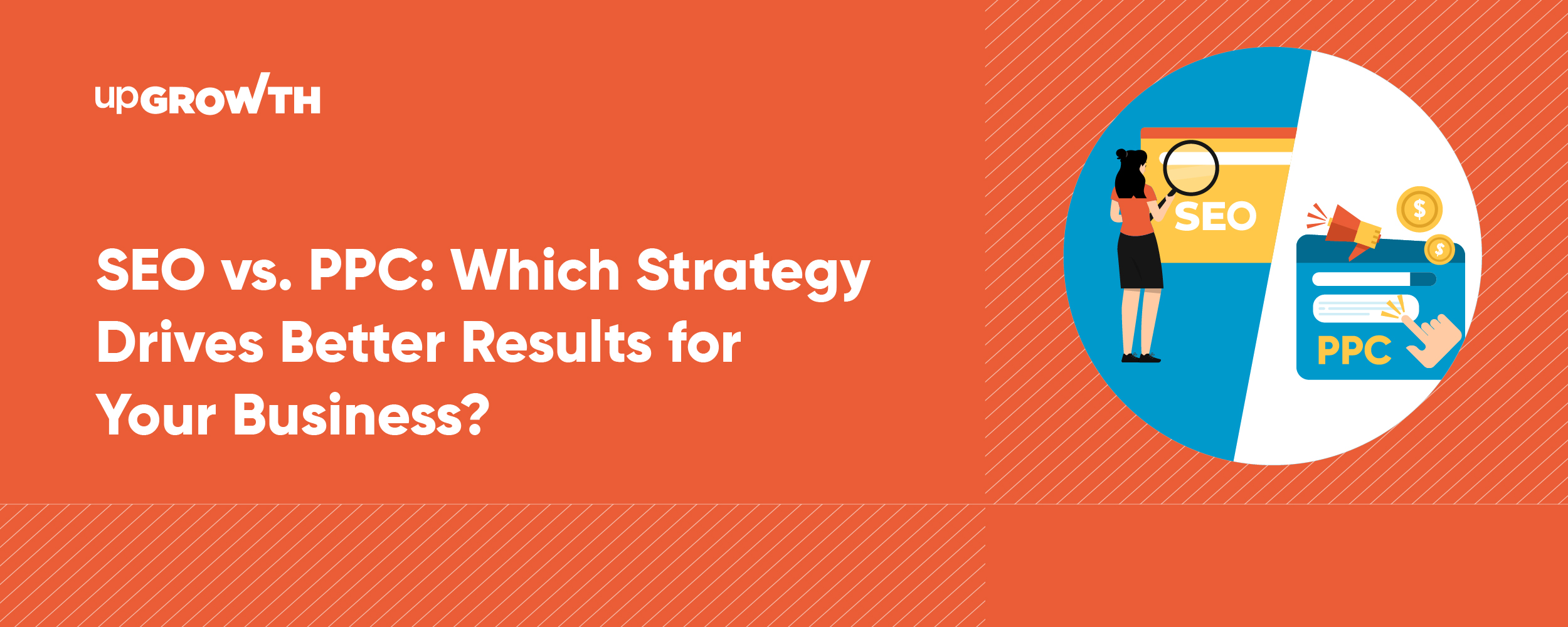
SEO (Search Engine Optimization) and PPC (Pay-Per-Click advertising) are digital marketing strategies that aim to boost your website’s visibility and attract more visitors. However, they take fundamentally different paths to achieve this goal. Understanding the nuances of SEO vs PPC is crucial in making informed decisions that align with your business goals and budget.
This blog dives into the intricacies between SEO and PPC, comparing their effectiveness, timeframes, costs, and impacts on traffic and conversion rates. Join us as we explore each strategy’s strengths and weaknesses, and uncover how they can work together to maximize your online presence.
What is Search Engine Optimization (SEO)?
Search Engine Optimization (SEO) focuses on enhancing a website’s visibility in organic search engine results. It’s a comprehensive strategy that aims to improve the quality and quantity of traffic to your website through unpaid search results. The essence of SEO lies in understanding and leveraging the algorithms search engines use to rank content, making your website more attractive and accessible to these engines and, by extension, to your target audience.
What is Pay-Per-Click (PPC)?
Pay-Per-Click (PPC) advertising offers a fast track to enhanced visibility and targeted traffic by placing ads on search engines and other platforms. PPC allows businesses to buy their way to the top of search results and other strategic locations on the web. Advertisers pay a fee each time their ad is clicked, effectively buying visits to their site beyond those earned through organic search.
SEO vs PPC: Breaking Down the Differences
While both SEO and PPC aim to increase a website’s visibility and drive traffic, they operate in fundamentally different ways and offer unique advantages. Understanding these distinctions is crucial for any business to decide where to allocate its digital marketing budget. Here’s a comparative look at SEO and PPC:
1. Cost Structure
SEO: Costs are indirect. You don’t pay for clicks or directly for visibility. Investments are made in content creation, site optimization, and link-building efforts. The goal is to earn traffic over time through higher organic search rankings.
PPC: Advertisers pay a fee each time their ad is clicked. This direct cost can vary widely depending on the competitiveness of the keywords and market. PPC offers a direct correlation between spending and visibility.
2. Timeframe for Results
SEO: Building organic search rankings is a gradual process. Significant improvements and traffic increases can take several months to materialize as search engines gradually index and rank new content.
PPC: Results are immediate. As soon as a campaign is live and funded, ads begin to appear in search results, driving traffic to your site right away.
3. Traffic Potential
SEO: Offers long-term, sustainable traffic. High-ranking positions on search engines can continuously drive users to your site over time without the need for ongoing payment.
PPC: Traffic is contingent on continued investment. Once you stop paying for ads, the traffic from PPC campaigns will also stop.
4. Targeting and Visibility
SEO: Organic efforts target broad keywords and rely on search engine algorithms to bring in traffic. Visibility in search results grows as your site becomes more authoritative and relevant to user queries.
PPC: Allows for highly targeted campaigns based on keywords, demographics, location, and even the time of day. Ads can be tailored to appear to specific segments of your audience, providing controlled visibility.
5. Credibility and User Perception
SEO: Organic listings often carry more credibility with users, who may prefer clicking on organic search results over ads.
PPC: While less trusted by some users than organic results, ads are prominently displayed and can be highly effective for certain products or services, especially with compelling ad copy and offers.
6. Conversion Rates
SEO: Organic traffic can lead to high conversion rates over time as it tends to be perceived as more credible. However, optimizing for conversion requires continuous effort in content and UX improvement.
PPC Can potentially lead to quicker conversions, especially for well-targeted campaigns and landing pages specifically designed for conversion. The ability to A/B test ad copy and landing pages also helps optimize the conversion rate.
SEO vs PPC: In-depth Comparison
It is important to understand not just their surface-level differences but also how SEO and PPC complement and contrast with each other in various aspects of a marketing campaign. This in-depth comparison aims to provide further clarity on choosing the right strategy for your business objectives.
1. Traffic Quality and Volume
SEO: Attracts organic traffic, often considered higher in quality due to the perceived credibility of organic search results. Users trust organic listings more, potentially leading to better engagement and conversion rates. However, building significant traffic volumes takes time and consistent effort.
PPC: Generates immediate traffic and can quickly scale the volume of visitors to your site. While PPC can target specific demographics for more qualified traffic, the dependence on paid ads may not always guarantee the same level of user trust as organic results.
2. Control and Flexibility
SEO: Offers less control over precisely which queries your pages show up for. The focus is on targeting broader keyword themes and providing quality content that aligns with user intent. Changes to strategy can take time to reflect in search rankings due to the nature of search algorithms.
PPC: Provides granular control over almost every aspect of campaign management, from keyword selection to ad placement, timing, and audience targeting. This control allows for rapid adjustments to respond to market changes, campaign performance data, or business needs.
3. Investment and ROI
SEO: Requires an upfront investment in content creation, site optimization, and link building, with returns that grow over time. While it may take months to see a substantial ROI, the long-term benefits of established organic visibility can be significant and cost-effective.
PPC: Involves direct costs for clicks, with a clearer immediate ROI based on campaign spend versus revenue generated from conversions. While effective for short-term goals and flexible budgets, the cost-per-acquisition can be higher, and the long-term sustainability depends on ongoing investment.
4. Sustainability and Longevity
SEO: Establishes a foundation for long-term traffic and visibility. High rankings can be maintained with ongoing optimization and content updates, providing lasting value from initial investments.
PPC: Offers short-term advantages with sustainability tied directly to campaign funding. Once ad spend stops, visibility and traffic from PPC campaigns cease almost immediately.
5. Integration and Synergy
Utilizing SEO and PPC in a complementary strategy can cover all bases: securing immediate visibility and targeting specific opportunities with PPC while building a lasting organic presence with SEO. Integrating both approaches allows businesses to maximize overall search visibility, capitalize on immediate opportunities, and invest in sustainable growth.
SEO vs PPC: Which is Better?
Whether SEO or PPC is better for your business hinges on multiple factors including your marketing objectives, budget constraints, timeframe, and competition level. Each strategy has its unique strengths and can be the best choice under different circumstances.
1. Using SEO
SEO is ideal for businesses aiming for long-term growth and establishing credibility in their industry. It’s particularly effective for brands that want to build a substantial online presence that continues to attract traffic over time without the ongoing costs associated with PPC. SEO is better for companies with a limited budget that seek sustained growth, organic visibility, and higher user trust levels.
2. Using PPC
PPC is the go-to strategy for businesses looking for immediate visibility, targeting specific demographics, or promoting time-sensitive offers. PPC is better suited for companies that can invest in achieving quick results, wish to test new markets, or need to complement their organic efforts in highly competitive sectors. It offers unmatched targeting capabilities and flexibility, allowing for precise control over the campaign and budget.
Combining SEO and PPC for Maximum Impact
Merging SEO and PPC strategies offers a synergistic approach to digital marketing, capitalizing on the strengths of each to achieve comprehensive online visibility and accelerated growth. By integrating these two powerful tools, businesses can dominate search engine results, cater to a broader audience, and enhance their digital marketing ROI.
Enhanced Visibility
Running SEO and PPC campaigns simultaneously increases your real estate on search engine results pages (SERPs), giving your brand double the exposure. This dual presence boosts visibility and increases the likelihood of clicks, as users often trust brands that appear organically and as paid ads.
Keyword and Conversion Data Sharing
PPC campaigns provide immediate feedback on keyword effectiveness and conversion metrics, which can be invaluable for refining SEO strategies. By analyzing which PPC keywords generate the most traffic and conversions, you can better optimize your site’s content and meta tags for those terms, enhancing your organic search performance.
Targeting Across the Buying Cycle
SEO and PPC target users at different stages of the buying cycle. While SEO effectively captures users in the information-seeking phase, PPC can target users ready to purchase with specific ads. Combining these approaches ensures you’re engaging potential customers at every stage, from awareness to decision-making.
A/B Testing for SEO
PPC ads allow rapid A/B testing of ad copy, landing pages, and calls-to-action (CTAs). Insights gained from these tests can inform and improve the content and user experience on your website, potentially boosting your organic rankings and user engagement.
Overcoming SEO Limitations
In highly competitive markets, ranking well organically for all desired keywords can be challenging. PPC can bridge this gap, ensuring visibility for terms that are difficult to rank for with SEO alone. Similarly, for new websites or content, PPC can drive immediate traffic while SEO efforts gain traction.
Mitigating Negative SEO Impacts
Algorithm updates and SEO fluctuations can temporarily impact your organic search visibility. A robust PPC campaign can help maintain your overall traffic and lead generation during these periods, providing a steady flow of visitors to your site.
Conclusion
SEO and PPC offer unique benefits to your business’s online presence. The decision between SEO and PPC isn’t a matter of choosing one over the other but understanding how each aligns with your business goals, budget, and timeline.
For many businesses, the most effective strategy combines the strengths of SEO and PPC to maximize digital marketing efforts. Remember that success often lies in flexibility and balance as you consider your digital marketing strategy. By continuously evaluating and adjusting your approach to SEO and PPC, you can ensure that your business meets and exceeds its online marketing objectives, achieving optimal growth and visibility.
FAQs
1. Are there any industries where SEO is more effective than PPC, or vice versa?
Yes, there are certain industries where one strategy may be more effective than the other. SEO tends to be more effective for industries with a high level of research before a purchase, such as healthcare, legal services, and B2B sectors. This is because users in these industries often seek in-depth information, which well-optimized content can provide.
PPC, on the other hand, might be more effective in highly competitive markets, like retail or travel, where immediate visibility for specific products or offers can significantly impact sales. Additionally, industries with high customer lifetime values, like education or subscription services, may benefit more from the long-term strategy of SEO.
2. What factors should businesses consider when deciding between SEO and PPC?
- Businesses should consider several factors, including:
- Budget: PPC requires ongoing investment for visibility, while SEO needs upfront investment for long-term benefits.
- Timeline: If immediate results are needed, PPC is preferable. SEO is a long-term strategy.
- Market Competition: In highly competitive sectors, PPC can provide visibility that might be hard to achieve quickly through SEO alone.
- Target Audience: Understanding where your audience spends their time online can help decide which strategy might be more effective in reaching them.
3. How do SEO and PPC strategies differ in terms of targeting specific audience segments?
SEO is generally more about attracting a broad audience based on the relevance of content to user queries. It targets users organically through their search behavior, relying on keywords that reflect a wide range of intents.
PPC allows for more precise targeting, including demographics, interests, location, and the time they’re most likely to convert. This means PPC can be tailored to reach very specific segments of your audience with customized messages, while SEO focuses on drawing in users based on the content’s relevance to their searches.
4. How does user intent influence the effectiveness of SEO and PPC campaigns?
For SEO, understanding user intent helps create content that meets users’ needs, whether they’re looking for information, comparing products, or ready to purchase. This alignment increases the chances of ranking higher in organic search results.
In PPC, user intent influences keyword selection and ad copy. Ads can be tailored to fit the specific intent of the search, whether it’s to buy, learn more about a product, or find a local service, making the campaign more effective by addressing the user’s immediate need.
5. Are there any emerging trends that impact the effectiveness of SEO and PPC?
The rise of voice search and the increasing use of digital assistants affect keyword strategies, with a shift towards long-tail keywords and natural language queries. Artificial intelligence and machine learning are making search engines smarter, affecting how they interpret user intent and rank content, which impacts SEO strategies.
For PPC, automation and smart bidding strategies are becoming more prevalent, allowing for more efficient management of ad campaigns. Additionally, the growing importance of privacy and data protection is leading to changes in how user data can be used for targeting, affecting both SEO and PPC.
About the Author
Optimizer in Chief
Amol has helped catalyse business growth with his strategic & data-driven methodologies. With a decade of experience in the field of marketing, he has donned multiple hats, from channel optimization, data analytics and creative brand positioning to growth engineering and sales.
 Growth Strategy and Planning
Growth Strategy and Planning Inbound Growth
Inbound Growth Growth Hacking
Growth Hacking Search Engine Optimization
Search Engine Optimization Paid and Performance Marketing
Paid and Performance Marketing Social Media Marketing
Social Media Marketing AI-Driven Growth Strategy
AI-Driven Growth Strategy
 Growth Tools
Growth Tools Offers
Offers









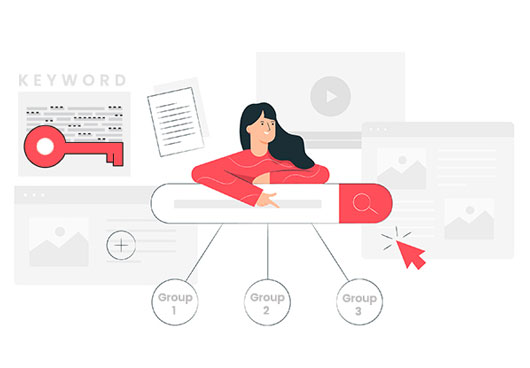
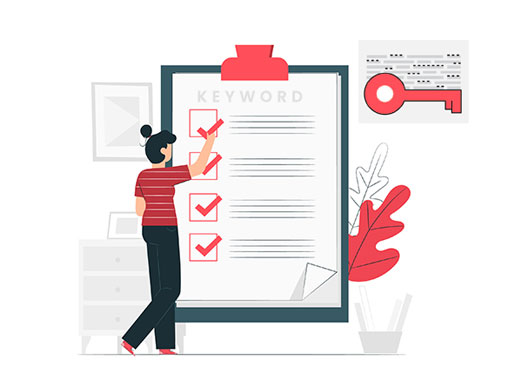

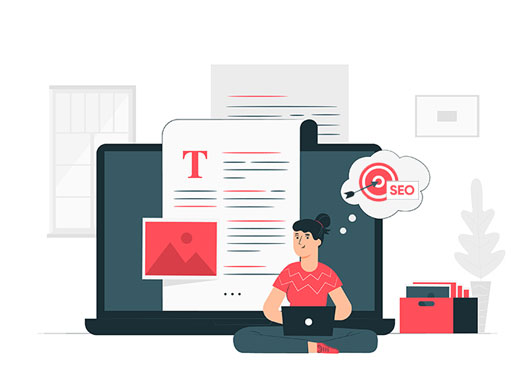
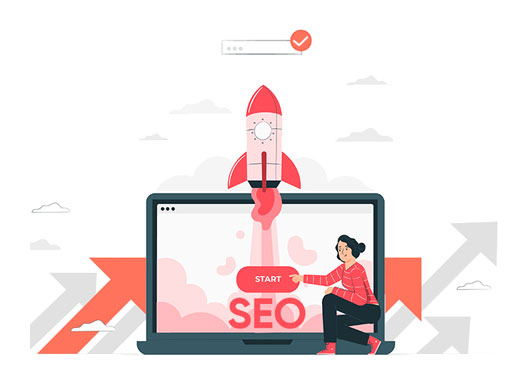
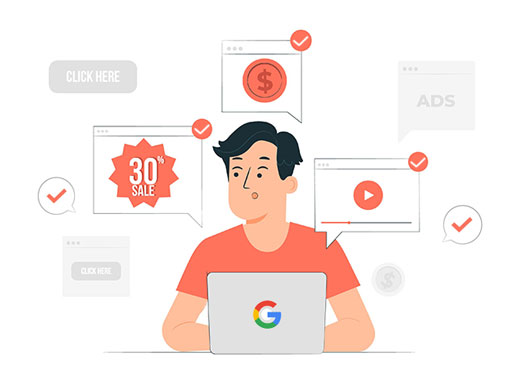
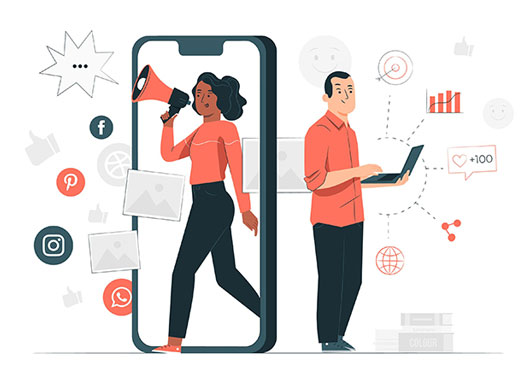


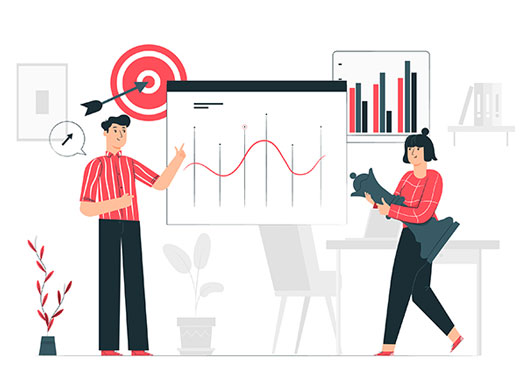
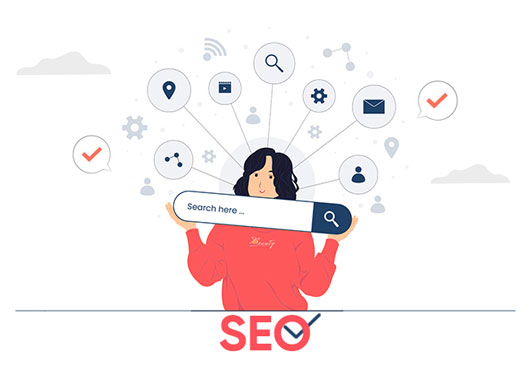


Leave a Reply